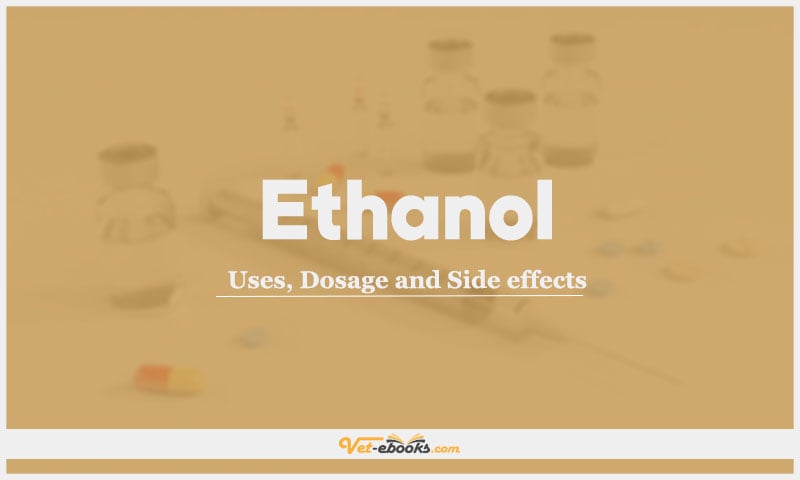Ethanol: Uses, Dosage and Side Effects

Overview
- Competitive inhibition of alcohol dehydrogenase.
Uses of Ethanol
- Prevents metabolization of ethylene glycol (antifreeze) or methanol to toxic metabolites.
- Also used to cleanse and degrease the skin.
Dose of Ethanol in Dogs and Cats
Dogs:
- Ethylene glycol toxicity: 5.5 ml of 20% ethanol solution/kg given i.v. q4h for 5 treatments, then i.v. q6h for 4 additional treatments.
- Alternatively, give an i.v. loading dose of 1.3 ml/kg of 30% solution then begin a constant rate infusion of 0.42 mg/kg/h for 48 hours.
- For clinically mild cases (minimal CNS signs), particularly if using vodka, oral administration is also possible.
Cats:
- Ethylene glycol toxicity: 5 ml of 20% ethanol solution/kg i.v. q6h for 5 treatments, then q8h for 4 additional treatments.
Drug Dosage Calculator
You Should Give:
Side Effects of Ethanol in Dogs and Cats
- Ethanol will cause diuresis and may cause an additive depression that will mask CNS signs of ethylene glycol toxicity.
- Adverse events occur frequently with intravenous ethanol infusions.
Contraindications of Ethanol in Dogs and Cats
- No information is available.
Some Notes:
- Avoid concurrent fomepizole administration (increases risk of alcohol toxicity).
Tip
Do You Want To Increase Your Veterinary Knowledge and Practical Skills?
You Can Now Browse and Download +3000 Books For Veterinary Professionals & Students Online.
Download Veterinary Books












